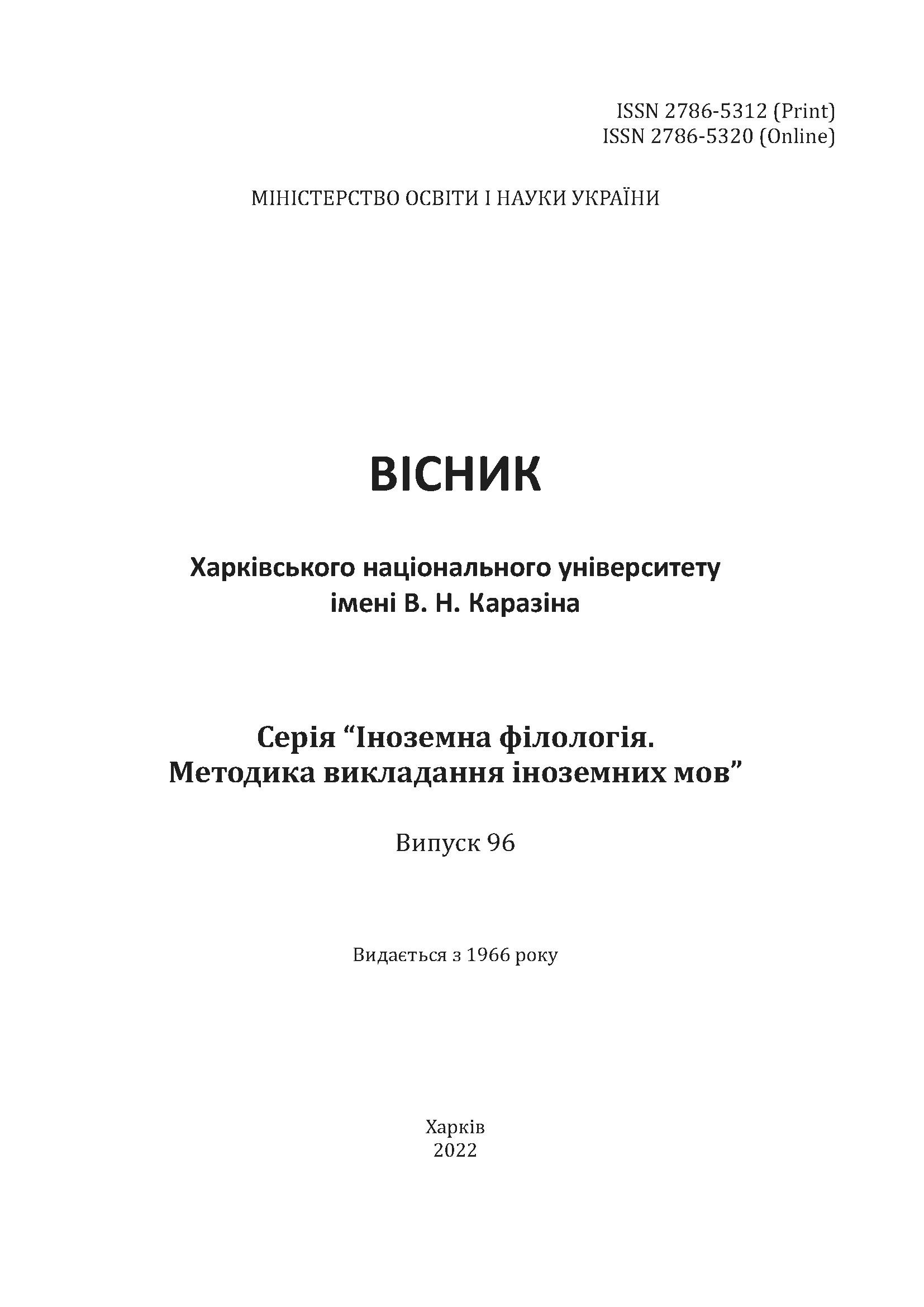Organization of skills upgrading using means of distance learning at the tertiary level
Abstract
The article notes that the problem of organization of professional development of teachers of higher educational institutions is related to the orientation of the higher education in Ukraine towards the European educational standards and is associated with the need for continuous professional development of the teaching staff at the tertiary level. Another factor is the necessity in actual professional reaction to the challenges brought about by the world pandemic and, as a result, digitalization of the basic social spheres and institutions, educational, in particular. The article provides the analysis and implementation of the world experience in organization of the process of educating and further professional development of teachers using contemporary educational online platforms. Based on modern research on the problem and taking into account the socio-economic requirements of the time, the main competences that determine the required level of the professional level of a teacher of the higher educational institution are determined. The article presents the experience of implementing upgrading skills programs for teachers of higher educational institutions using online platforms: trainings, webinars, master classes, participation in academic mobility programs, Master degree training programs which have been piloted at the universities of Kharkiv to develop certain competences.
Downloads
References
Skills development in the time of COVID-19: Taking stock of the initial responses in technical and vocational education and training International Labour Office (2021). – Geneva: ILO, 2021. ISBN 978-92-2-033116-3 (print) ISBN 978-92-2-033117-0 (web PDF). [Online] Available: https://www.ilo.org/wcmsp5/groups/public/---ed_emp/---ifp_skills/documents/publication/wcms_766557.pdf
J. Burgessa, J. Russellb (2003). The effectiveness of distance learning initiatives in organizations, Journal of Vocational Behavior, no 63, pp. 289-303. [Online] Available: http://citeseerx.ist.psu.edu/viewdoc/download?doi=10.1.1.92.4772&rep=rep1&type=pdf
M. Burns (2011). Distance Education for Teacher Training: Modes, Models, and Methods, Education Development Center, Inc. [Online] Available: https://www.edc.org/sites/default/files/uploads/Distance-Education-Teacher-Training.pdf
O.P. Kazakova, A.N. Murzich (2020). Teaching and Learning Skills in the Organization of Distance Learning in Higher Education Institutions, Conference: Research Technologies of Pandemic Coronavirus Impact (RTCOV 2020). [Online] Available: https://www.researchgate.net/publication/346807476_Teaching_and_Learning_Skills_in_the_Organization_of_Distance_Learning_in_Higher_Education_Institutions
The Future of Jobs / World Economic Forum 2016. (2016). [Online]. Available: http://www3.weforum.org/docs/WEF_Future_of_Jobs.pdf
L. Khoruzha, M. Bratko, O. Kotenko,O. Melnychenko, V. Proshkin. (2018). Competences of teachers of higher educational establishments in the time of changes: diagnostics and analytics (using the results of Kyiv university named after Boris Grynchenko), Kyiv : Kyivskyi unt imeni Borysa Hrinchenka, 2018. 92p. [Online]. Available http://elibrary.kubg.edu.ua/id/eprint/25384/1/V.Proshkin_KVVSDZ_FITU.pdf [in Ukr.]
Some issues of professional development of scientific and pedagogical workers (2020). Nakaz MONU № 1504 vid 04.12.20. [Online]. Available: https://mon.gov.ua/storage/app/uploads/public/5fd/8e5/df0/5fd8e5df039fc332033916.pdf [in Ukr.]
A. Bezuidenhout, (2018). “Analysing the importance-competence gap of distance educators with the increased utilisation of online learning strategies in a developing world context”, International Review оf Research іn Open аnd Distributed Learning, no 19 (3), pp. 263-281. [Online]. Available: doi: 10.19173/irrodl.v19i3.3585
C. Ng (2016). “Sustaining learning engagement in distance education: an achievement goal Perspective”, Reforming Learning and Teaching in Asia-Pacific Universities: Influences of Globalised Processes in Japan, Hong Kong and Australia, no 33, pp. 115-134. [Online]. Available: doi: 10.1007/978-981-10-0431-5_6
L.F.C. Da Silva, M. W. Barbosa and R. R. Gomes (2018). “Measuring participation in distance education online discussion forums using social network analysis”, Journal of the Association for Information Science and Technology, no 70 (2), pp. 140-150. [Online]. Available: doi: 10.1002/asi.24080
Provisions on qualification development of scientific and pedagogical workers of the National technical university “Kharkiv Polytechnic Institute” (2020). Approved by the Academic Council of the NTU «KhPI» «13» November 2020 r. Protocol № 6. [Online]. Available: URL: https://bit.ly/3fFeV0y [in Ukr.]
O. Rezvan, O.Ilienko, O. Zelinska , A. Krokhmal and A. Prykhodko. (2020) “Digital Narrative as A Method of Emergency Distance Learning”, Arab World English Journal (AWEJ) Special Issue on the English Language in Ukrainian Context, . [Online]. Available: https://ssrn.com/abstract=3735614
R. Bolitho, R. West (2017) Internationalisation of Ukrainian universities; the English language dimension / Kyiv, “Stal”, 2017
Yakovenko O.I. (2021) «Dy`stancijna forma pidvy`shhennya kvalifikaciyi yak efekty`vny`j zasib navchannya ta profesijnoyi realizaciyi pedagogichny`x pracivny`kiv ZVO», Pedagogika formuvannya tvorchoyi osoby`stosti u vy`shhij i zagal`noosvitnij shkolax, # 75, T. 3, s – [Elektronny`j resurs] Rezhy`m dostupu: http://pedagogy-journal.kpu.zp.ua/archive/2021/75/part_3/34.pdf




